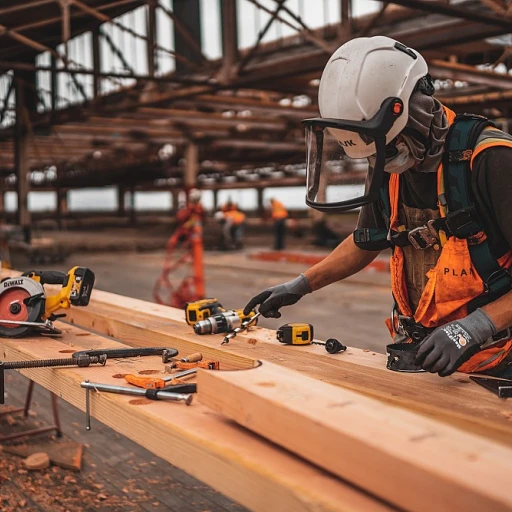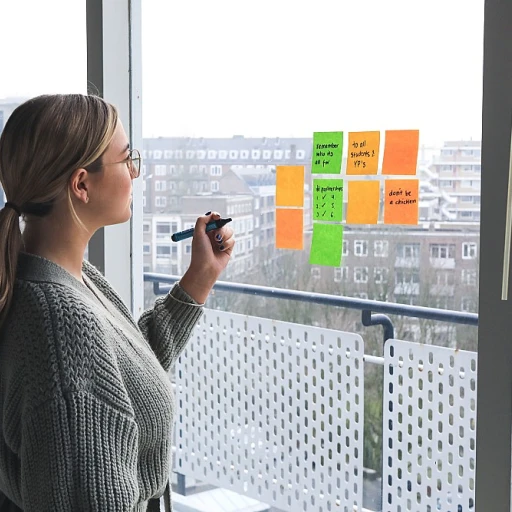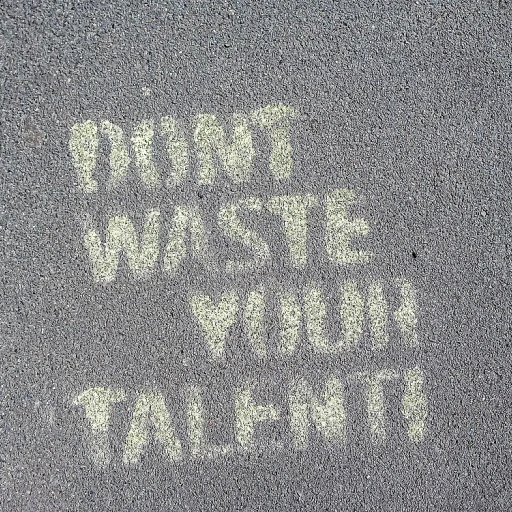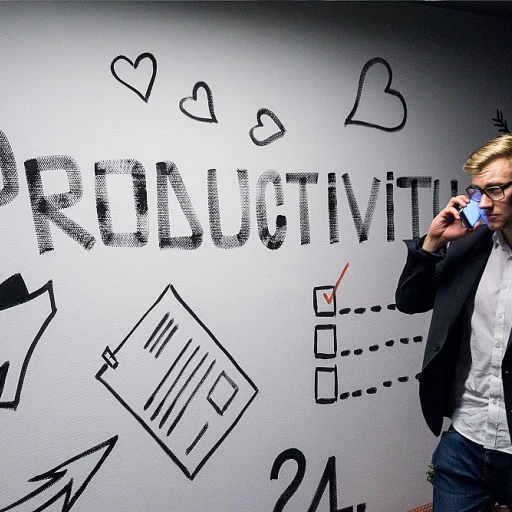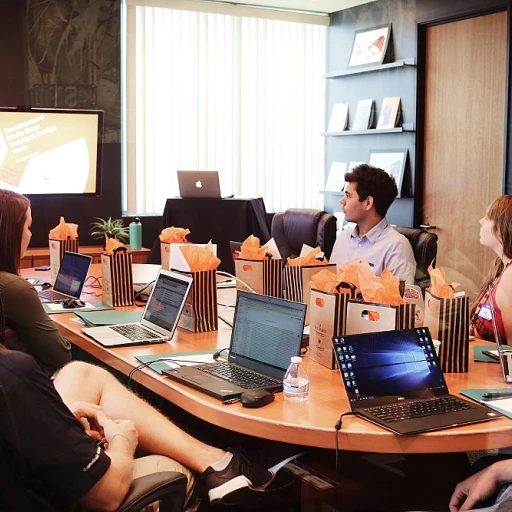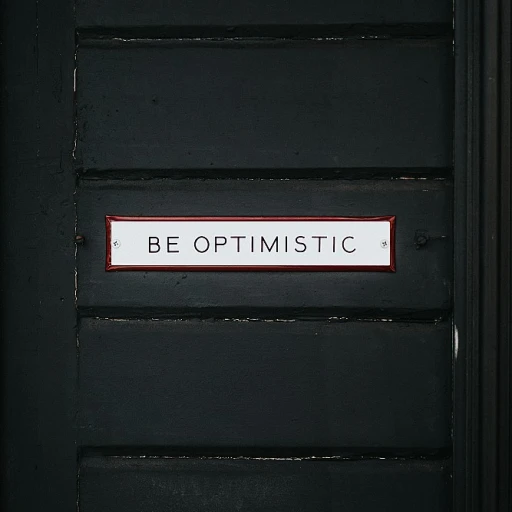
The Role of AI in Construction HR
The Impact of AI on Human Resources in the Construction Sector
The integration of artificial intelligence in the construction industry's human resources sector is revolutionizing operations and changing the way companies manage their workforce. As the industry continues to grow, it's imperative for construction companies to adopt advanced technologies to stay competitive and efficient.
AI-driven solutions provide significant enhancements in various HR functions, streamlining processes such as payroll management, time tracking, and workforce management. With automation at the core, companies can effectively manage employee data, job costing, and compliance, making it easier for HR professionals to oversee their responsibilities.
One of the significant benefits of using AI in HR is real-time tracking and management of employee attendance and job performance. Mobile apps powered by AI allow HR teams and employees to access information seamlessly from anywhere, facilitating a more dynamic work environment. This capability is particularly crucial in the construction industry where job sites vary, and workforce mobility is a constant necessity.
Furthermore, AI-driven software often comes equipped with features that enhance recruitment efficiency by leveraging data analysis to identify the best candidates. This allows construction companies to optimize their hiring processes, ensuring that they bring on board employees who will add value to their businesses.
Enhancing construction HR with AI not only addresses the industry's immediate needs but also sets the foundation for future improvements. For those interested in delving deeper into enhancing HR with advanced PII redaction software, further insights are available via this link.
Key Features of AI-Driven HR Software
Important Elements of AI-Powered HR Tools
In today's fast-paced world, utilizing AI-driven human resources software is becoming essential, especially in the construction industry where efficiency is key. These tools come equipped with several critical features that streamline workforce management and enhance overall productivity.
Time Tracking and Attendance: One of the best software features offered by AI-powered tools is time tracking. Efficient time tracking allows construction companies to monitor hours worked, ensuring accuracy in payroll and compliance. Modern time and attendance solutions often come with mobile app access, giving employees flexibility in logging their hours in real-time.
Data-Driven Decision Making: AI-driven HR platforms aggregate vast amounts of data, enabling construction businesses to make informed decisions. By analyzing trends and patterns, companies can optimize resource allocation, track project progress, and ensure effective job costing, enhancing overall management efficiency.
User-Friendly Interfaces: The introduction of intuitive, user-friendly interfaces means that these tools are accessible for all employees, regardless of their tech-savviness. A construction business can greatly benefit from this accessibility, as it eases the adoption process and boosts workforce engagement.
Streamlined Payroll and Compliance: Incorporating AI into HR processes goes beyond just workforce and data management; it significantly enhances payroll operations. Automated construction payroll features help eliminate human error, ensure timely payments, and maintain compliance with industry standards.
AI-driven HR tools offer a free trial or book demo options, allowing construction companies to experience firsthand the transformative impact of these technologies on workforce management and operational efficiency.
Overcoming Challenges with AI Implementation
Implementing AI: Navigating Hurdles and Achieving Success
Successfully integrating AI in the HR sector of the construction industry is not without its challenges. Construction companies aiming to leverage AI-driven workforce management solutions often encounter several obstacles. Let’s delve into these challenges and explore practical strategies to overcome them. One major hurdle is the resistance to change, which is common in industries with traditional workforces. Employees and management may be wary about transitioning from manual processes to AI-based systems. Promoting a culture of learning and adaptation is crucial. Offering training sessions helps the construction workforce understand how AI can improve job efficiency, such as through enhanced time tracking and data management. Another challenge is ensuring data accuracy and compliance. AI systems rely heavily on accurate data to function optimally. Construction businesses must establish robust data governance practices to maintain high data quality. This includes consistent tracking and data input procedures, necessary for effective employee and payroll management without errors. Companies also face the issue of selecting suitable AI-driven HR software. The construction industry has unique requirements, meaning the chosen software must cater to specific needs like mobile access for on-site managers and real-time updates for project tracking. Reviewing features during a software construction free trial or by booking demos can assist companies in determining the best software fit. Cost concerns cannot be overlooked, especially for smaller construction businesses. AI implementation may initially require substantial investment, but long-term benefits such as efficient management and improved construction payroll accuracy often outweigh these initial costs. Companies can also look into scalable solutions that grow with their business needs. In overcoming these challenges, companies enhance their HR operations and prepare their workforce for future advancements. Continued education on AI in human resources ensures a sustainable integration, as construction companies navigate the evolving landscape of AI technology and workforce dynamics. For further insights on leveraging AI for enhanced employee analytics, read full coverage and recommendations.Case Studies: Success Stories in Construction HR
Real-World Applications of AI in HR for Construction
The integration of AI into the human resources functions within the construction industry has yielded impressive results. Companies that have implemented AI-driven HR software are experiencing significant enhancements in their efficiency and effectiveness. Let’s delve into some case studies that highlight these success stories.- Improved Time Tracking and Payroll Management: A large construction company faced challenges with time attendance and payroll discrepancies. By adopting an AI-based time tracking system, they could automate attendance management, ensuring accurate tracking of employees' hours. This adjustment not only reduced payroll errors but also freed HR professionals to focus on more strategic tasks.
- Streamlined Workforce Management: Another construction business leveraged AI software to optimize workforce allocation across multiple job sites. Through real-time data analysis, they efficiently deployed teams where they were needed most, reducing downtime and improving project delivery times. The use of mobile applications allowed employees and managers to access information on the go, enhancing communication and workforce collaboration.
- Enhanced Compliance and Data Management: By integrating AI into their HR processes, several construction companies have better managed compliance with regulatory standards. The software features an alert system that tracks expiry dates for certifications and licenses, ensuring that all employees remain compliant with legal requirements.
- User-Friendly Management Solutions: Construction software equipped with AI features has been acclaimed for its ease of use. One HR team remarked on the user-friendly interface that made it simple to track and manage employee data efficiently. Many companies reported that the software’s free trial and option to book a demo were pivotal in understanding and implementing these cutting-edge solutions effectively.
Future Trends in AI for Construction HR
Emerging Advantages of AI in Construction HR
Artificial intelligence continues to transform various sectors, and the construction industry is no exception. As companies increasingly adopt AI-driven solutions, several trends are emerging that highlight the advantages of integrating such technologies into construction human resources.Integration of Mobile Solutions
As mobile apps gain prominence, construction companies are leveraging these solutions to streamline workforce management. AI-powered mobile platforms provide real-time access to data, allowing HR professionals to track time and attendance effectively. This level of connectivity facilitates immediate problem-solving and enhances overall employee management.Predictive Analytics for Workforce Allocation
One of the most significant advancements in AI within HR is the use of predictive analytics. This feature is essential for construction companies aiming to optimize their workforce allocation. By analyzing historical data on employee performance and project timelines, AI can forecast future needs, ensuring the right amount of resources are allocated to various jobs. This minimizes downtime and streamlines operations.Enhanced Compliance and Risk Management
As the construction industry deals with stringent compliance requirements, AI-driven software ensures companies can maintain compliance with ease. By automatically tracking regulatory changes and providing real-time notifications, AI solutions help mitigate risk and prevent potential penalties. AI also aids in maintaining thorough records of employee safety training and certifications, crucial aspects of HR management.Employee Experience through Personalized Solutions
Personalization is becoming increasingly vital in enhancing employee satisfaction and retention. AI allows for a more tailored approach to workforce management by learning individual employee preferences and adapting HR strategies accordingly. Whether through personalized training programs or custom payroll solutions, AI-driven systems can significantly improve overall job satisfaction.AI-Driven Innovations in Payroll and Job Costing
AI is reshaping payroll operations by providing error-free calculations and timely salary disbursements, crucial for maintaining workforce satisfaction. Automation in payroll and job costing processes ensures accuracy and frees up HR professionals to focus on strategic tasks. As these trends continue to evolve, construction companies must keep abreast of technological advancements in HR management software. When executed effectively, AI adoption in construction human resources will not only enhance efficiency but also lead to more satisfied employees, better compliance, and overall industry growth.Practical Steps for Adopting AI in Construction HR
Adopting AI in Construction HR for Optimal Efficiency
To effectively incorporate AI into your HR processes, several practical steps can be followed. These will not only ensure a seamless transition but also enhance efficiency in your construction business.
Identify the Right Software
Start by identifying the best software that aligns with your specific needs. Consider both the features offered and how user-friendly the platform is. Many construction companies offer free trials or the option to book a demo, providing valuable insights into what works best for your organization.
Develop an Integration Plan
An effective integration plan is key. Determine how AI-driven tools will be utilized, whether for payroll, time tracking, management of employee data, or real-time workforce tracking. Clarity on integration helps ensure staff are prepared and supportive of the transition.
Train Your Team
Learn and educate your team about AI technology. This might include training sessions on using mobile apps for time attendance or construction payroll processing. Successful implementation requires a workforce that’s confident and comfortable with the new systems.
Focus on Compliance
AI tools can help with ensuring compliance. However, it requires proper time and job costing evaluations to ensure everything aligns with industry standards and regulations. Access the right features that facilitate adherence to construction industry guidelines.
Monitor and Adjust
Once deployed, continually monitor the system's effectiveness. Gather employee feedback and adjust strategies accordingly to optimize workforce management. Regular assessment will help in refining processes, ensuring the AI tools provide the intended efficiencies.
Remember, adopting AI in the construction sector's HR processes is a transformative opportunity. With careful planning and execution, companies can achieve significant improvements in efficiency and productivity.



